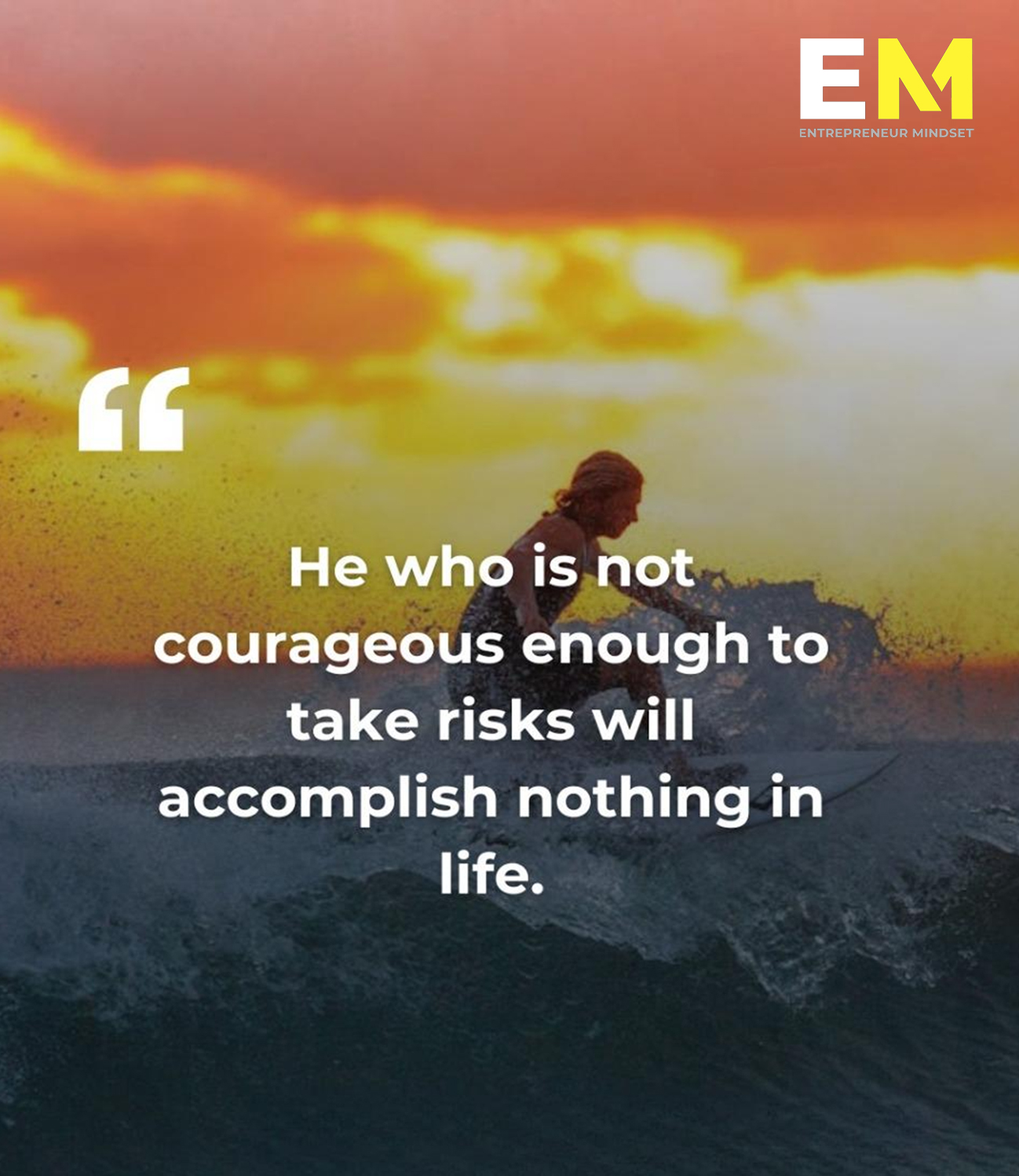He who is not courageous enough to take risks will accomplish nothing in life.
The adage “He who is not courageous enough to take risks will accomplish nothing in life” encapsulates a profound truth about the nature of success and achievement. It underscores the idea that without the willingness to step out of one’s comfort zone and embrace uncertainty, true progress and fulfillment are unlikely to be achieved.
This principle is applicable across all aspects of life, from personal development and career advancement to building meaningful relationships and pursuing creative endeavors.
Courage, in this context, is not just about facing physical danger; it’s about the mental and emotional fortitude required to take calculated risks. It’s about being willing to step into the unknown, to try something new, and to embrace the possibility of failure.
This type of courage is what separates those who dream from those who achieve, those who talk from those who act.

Taking risks is inherently linked to the process of growth and learning. Every great achievement in history has been preceded by a risk, whether it was Columbus setting sail into the unknown, Edison experimenting with countless prototypes before inventing the light bulb, or Jobs revolutionizing the technology industry with the launch of the iPhone.
These individuals, and countless others like them, understood that without risk, there could be no reward.
The fear of failure is often what holds people back from taking risks. It’s a natural human instinct to avoid situations that could lead to disappointment or loss. However, it’s important to reframe failure as a learning experience rather than a mark of shame.
Every failure contains within it the seeds of success, if only one is willing to learn from it and persevere. As Thomas Edison famously said, “I have not failed. I’ve just found 10,000 ways that won’t work.”
Moreover, taking risks is not about acting recklessly or without consideration. It’s about weighing the potential benefits against the possible downsides and making an informed decision. It’s about having the courage to follow one’s convictions, even when the outcome is uncertain.
This type of calculated risk-taking is what leads to innovation, progress, and personal growth.
In the realm of personal development, taking risks can mean stepping out of one’s comfort zone to try new things, meet new people, and embrace new experiences. It can mean pursuing a passion project, even if it means sacrificing stability or facing criticism.
It can mean speaking up in meetings, applying for a dream job, or starting a business. Each of these actions requires courage, but the potential rewards—in terms of personal fulfillment, career advancement, and financial success—can be immense.
In relationships, taking risks can mean being vulnerable, sharing one’s true feelings, and opening up to the possibility of love. It can mean forgiving, trusting, and committing, even when it’s scary. These risks are what lead to deep, meaningful connections and a sense of belonging.
In creative pursuits, taking risks can mean experimenting with new styles, pushing the boundaries of one’s abilities, and sharing one’s work with the world, even when it feels raw and imperfect. It’s about embracing the creative process and allowing oneself to be inspired, challenged, and transformed.
In conclusion, the willingness to take risks is a fundamental component of a successful and fulfilling life. It requires courage, resilience, and a willingness to embrace uncertainty.
Those who are brave enough to step out of their comfort zones, learn from their failures, and persevere in the face of adversity are the ones who truly change the world and achieve their dreams. As we navigate the challenges and opportunities that life presents, let us remember the importance of courage and the transformative power of taking risks.





